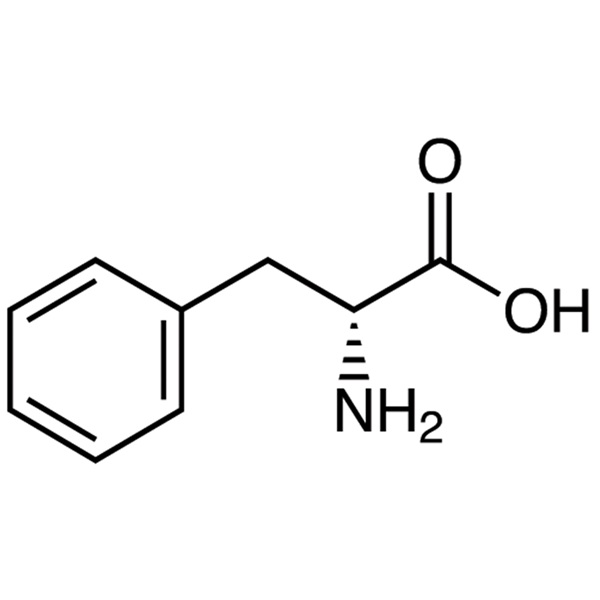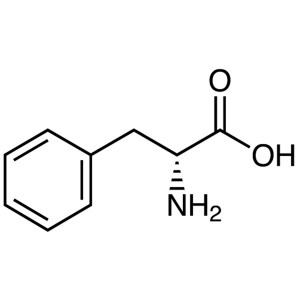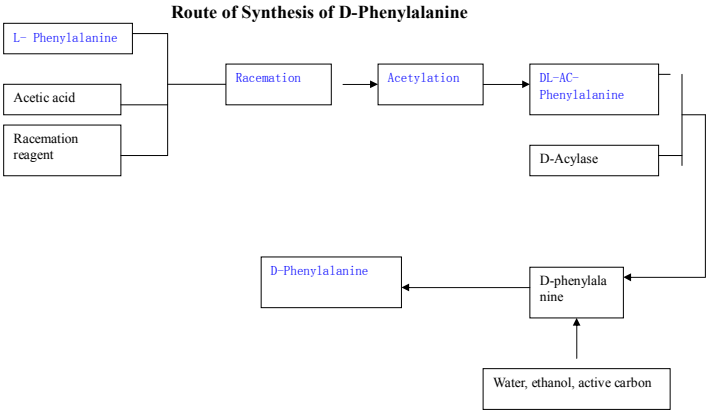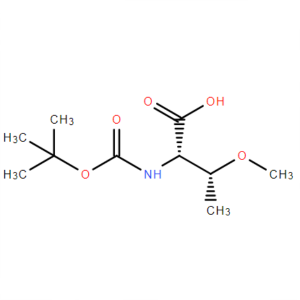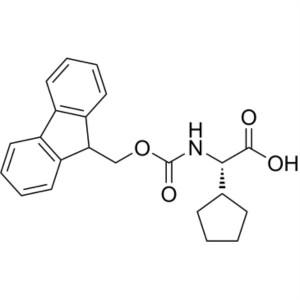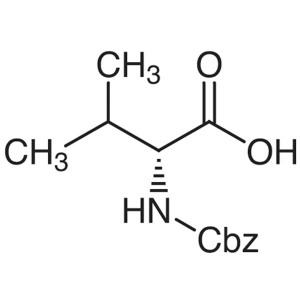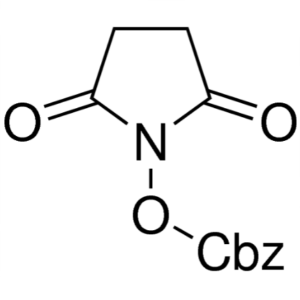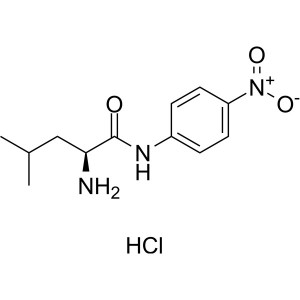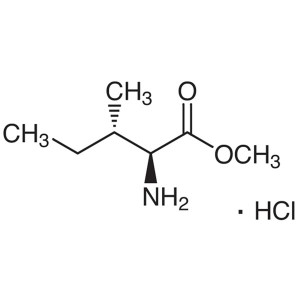D-Phenylalanine CAS 673-06-3 (H-D-Phe-OH) Assay 98.0~102.0% Factory 50MT/Month
Shanghai Ruifu Chemical Co., Ltd. is the leading manufacturer and supplier of D-Phenylalanine (H-D-Phe-OH) (CAS: 673-06-3) with high quality, production capacity 50 Tons per Month. D-Phenylalanine is recognized by domestic and foreign pharmaceutical factories and research and development institutions. Ruifu Chemical supplys a series of amino acids derivatives. We can provide COA, worldwide delivery, small and bulk quantities available. If you are interested in D-Phenylalanine, Please contact: alvin@ruifuchem.com
| Chemical Name | D-Phenylalanine |
| Synonyms | H-D-Phe-OH; D-Phe; D-(+)-Phenylalanine; Dextro-Phenylalanine; (R)-Phenylalanine; (2R)-2-Amino-3-phenylpropanoic Acid; (R)-3-Phenyl-2-Aminopropanoic Acid; D-α-Amino-β-phenylpropionic Acid; D-alpha-Aminohydrocinnamic Acid; (R)-2-Amino-3-Phenylpropionic Acid; D-alpha-Amino-beta-Phenylpropionic Acid |
| Stock Status | In Stock, Production Capacity 50 Tons per Month |
| CAS Number | 673-06-3 |
| Molecular Formula | C9H11NO2 |
| Molecular Weight | 165.19 |
| Melting Point | 273.0~276.0℃(lit.) |
| Density | 1.201 |
| Solubility | Soluble in Water (30 mg/ml), Methanol (Slightly), 1 M HCl (50 mg/ml), Ethanol (<1 mg/ml at 25℃), and DMSO (<1 mg/ml at 25℃) |
| Solubility in Hot Water | Almost Transparency |
| Storage Temp. | Sealed in Dry, Store at Room Temperature |
| COA & MSDS | Available |
| Classification | Amino Acids & Derivatives |
| Brand | Ruifu Chemical |
| Hazard Codes | Xi,C | RTECS | AY7533000 |
| Risk Statements | 34 - Causes burns | Hazard Note | Irritant |
| Safety Statements | 24/25-45-36/37/39-27-26 | TSCA | Yes |
| WGK Germany | 3 | HS Code | 2922491990 |
| Items | Inspection Standards | Results |
| Appearance | White Crystals or Crystalline Powder | Conforms |
| Identification | Infrared Absorption Spectrum | Conforms |
| Specific Rotation [α]20/D | +33.5° to +35.2°(C=2 in H2O) |
+33.6° |
| State of Solution (Transmittance) | ≥95.0% | Conforms |
| Chloride (Cl) | ≤0.020% | <0.020% |
| Sulfate (SO4) | ≤0.020% | <0.020% |
| Ammonium (NH4) | ≤0.020% | <0.020% |
| Iron (Fe) | ≤10ppm | <10ppm |
| Heavy Metals (Pb) | ≤10ppm | <10ppm |
| Arsenic (As2O3) | ≤2.0ppm | <2.0ppm |
| Loss on Drying | ≤0.20% | 0.16% |
| Residue on Ignition (Sulfated) | ≤0.20% | 0.05% |
| D-Phenylalanine Purity | ≥99.0% (by HPLC) | 99.7% |
| D-Acetylphenylalanine | ≤0.10% | Not Found Out |
| Residual Solvents | (by GC) | |
| Ethanol | ≤5000ppm | Not Found Out |
| Acetone | ≤5000ppm | Not Found Out |
| Assay | 98.0 to 102.0% (On Dried Basis) | 99.7% |
| L-Phenylalanine | ≤0.10% (by HPLC) | 0.07% |
| Ninhydrin Positive Substances | ≤0.20% | <0.18% |
| pH Value | 5.4 to 6.0 | 5.8 |
| Conclusion | This Product by Inspection Accords with the Standard of AJI97 | |
| Main Uses | Pharmaceutical Intermediates; Chiral Intermediates; etc. | |
1. Appearance-- Visual inspection
2. Specific rotation-- Specific rotation is measured in accordance with GB/T613-1988
Sample preparation: Accurately weigh the 0.5000g sample and move it to a clean and dry 50ml volumetric bottle, add 20ml water, cover the bottle, shake it to dissolve, and then dilute it to the scale with water.
Test: Adjust the zero of the gyroscope before the test, then load the test tube with the sample solution, record the rotation Angle, and calculate the specific rotation of the sample with the following formula.
[а]D20 = (r×50) ÷(L×W)
Where:
[а]D20: Specific optical rotation at 20℃ of sample solution
r: Optical rotation observed at 20℃ for the sample solution
50: Volume of prepared sample solution (ml)
w: Sample weight (g)
L: Optical rotation tube length (dm)
3. Burning residue
Take about 1g of this product and heat it at 600℃, heat it until it is completely ashes according to the regulation of Appendix Ⅷ N of Part II of CP2010 Edition, add 0.5-1.0ml concentrated sulfuric acid and heat it (700℃-800℃) to constant weight.
3.1 "Incandescent residue" in this Method (Chinese Pharmacopoeia 2005 Edition, Part II Appendix Ⅷ N) refers to the metal oxides or sulfates left over after the drugs (mostly organic compounds) are heated until completely ash, then sulfuric acid is added 0.5 ~ 1.0ml and incandesced (700 ~ 800℃) to constant weight.
4 Chiral purity (HPLC)
Instruments: High performance liquid chromatography, PDA detector. Electronic analytical balance, reagent; Level of chromatography
Chromatographic conditions: Column: Astec CHIROBIOTICTMT HPLC Column 250X4.6mm,5ul, detection wavelength, flow rate, sample size :10 u L(reference) thinner: water, data collection time :20.00min.
Sample determination: The sample was analyzed according to the following sampling procedure :1 needle of blank solution and 1 needle of DL-phenylalanine reference.
1 needle sample solution,
Results Calculation: HPLC content was determined to be less than 0.5% according to peak area normalization and blank deduction.
5. Dry and weightless
5.1 Instruments:
Thermostatic drying oven, 1/10,000 balance.
5.2 Procedure:
In a flat weighing bottle with a constant weight and over-drying ground mouth cover, weigh 1 gram (accurate to 0.0001 gram) of the sample. The sample should be evenly spread at the bottom of the weighing bottle with a thickness of no more than 10mm, put in a thermostatic electric drying oven, dry at 105-110 ℃ for 3 hours, and then move into the drying room to cool to room temperature for weighing.
Calculation: Dry weight loss %= (M1-M2) ÷M×100
Where: M1: mass of sample and measuring bottle before drying, grams
M2: Mass of sample and measuring bottle after drying, in grams
M: Sample mass, grams
Step 6: Content
6.1 Instruments
High performance liquid chromatography, PDA detector.
Electronic analytical balance
6.2 Reagents
Acetonitrile (chromatographic grade), TFA(chromatographic grade)
6.3 Chromatographic Conditions
6.3.1 Column: YMC-ODS-AM, 5 μL, 150x4.6 mm
6.3.2 Detection wavelength: INC220nm
Flow rate :1.0mL/min
Sample size: 10μL(for reference)
Thinner: Acetonitrile
Data collection time: 20.00min
6.4 Mobile phase preparation
Mobile phase A (0.1% trifluoroacetic acid water): precision absorption 2. Dilute Oml trifluoroacetic acid with water to 2000m1, mix well, and degas;
Mobile phase B(0.1% acetonitrile trifluoroacetic acid): precise absorption 2.Oml trifluoroacetic acid was diluted to 2000m1 with acetonitrile, mixed and deggated;
6.5 Mobile phase gradient program
Time (min) A% B%
0.00 90 10
12.00 10 90
15.00 10 90
15.01 90 10
20.00 90 10
6.6 Preparation of sample solution
Weigh and dissolve 0.1g sample with acetonitrile, dilute to 100m1, shake well for use, or the same concentration. Prepare two samples in parallel.
6.7 Sample Determination
Analyze the sample according to the following sampling procedure:
More than 1 injection of blank solution
1 needle sample solution 1#
1 needle sample solution 2#
6.8 Result Calculation
2.8.1 The peak area normalization method was used to calculate the HPLC purity by deducting blank space.
2.8.2 The relative mean deviation of the purity of two needles shall not be greater than 1%
2.8.3 If the results of both injections meet the acceptance criteria, the average purity is taken as the final result.
Package: Fluorinated Bottle, 25kg/bag, 25kg/Cardboard Drum, or according to customer's requirement.
Storage Condition: Store in sealed containers at cool, dry and ventilated warehouse away from incompatible substances. Protect from light and moisture.
How to Purchase? Please contact Dr. Alvin Huang: sales@ruifuchem.com or alvin@ruifuchem.com
15 Years Experience? We have more than 15 years of experience in the manufacture and export of a wide range of high quality pharmaceutical intermediates or fine chemicals.
Main Markets? Sell to domestic market, North America, Europe, India, Korea, Japanese, Australia, etc.
Advantages? Superior quality, affordable price, professional services and technical support, fast delivery.
Quality Assurance? Strict quality control system. Professional equipment for analysis include NMR, LC-MS, GC, HPLC, ICP-MS, UV, IR, OR, K.F, ROI, LOD, MP, Clarity, Solubility, Microbial limit test, etc.
Samples? Most products provide free samples for quality evaluation, shipping cost should be paid by customers.
Factory Audit? Factory audit welcome. Please make an appointment in advance.
MOQ? No MOQ. Small order is acceptable.
Delivery Time? If within stock, three days delivery guaranteed.
Transportation? By Express (FedEx, DHL), by Air, by Sea.
Documents? After sales service: COA, MOA, ROS, MSDS, etc. can be provided.
Custom Synthesis? Can provide custom synthesis services to best fit your research needs.
Payment Terms? Proforma invoice will be sent first after confirmation of order, enclosed our bank information. Payment by T/T (Telex Transfer), PayPal, Western Union, etc.
Application of D-Phenylalanine (CAS: 673-06-3)
D-Phenylalanine is the D-enantiomer of phenylalanine. It is a phenylalanine and a D-alpha-amino acid. D-Phenylalanine is a very important chiral intermediate in organic synthesis, widely used in new drug development, synthesis of polypeptide compounds and other pharmaceutical intermediates. And because of the D-Phenylpropyl amino acid itself structure and special activity, has attracted more and more people's attention. Shanghai Ruifu Chemical Co., Ltd. is the leading manufacturer and supplier of D-Phenylalanine in China.
1. The primary use of D-Phenylalanine as a health supplement is the relief of discomfort. It may also help to support neurological and joint functions. D-Phenylalanine can restrain the failure of human body, it have antipyretic and analgesic action.
2. D-Phenylalanine is a pharmaceutical intermediate mainly used for the treatment and prevention of osteoporosis, cardiovascular, diabetes, arteriosclerosis and other diseases.
3. D-Phenylalanine It is used as a pharmaceutical intermediate or API to synthesize drugs such as Nateglinide. Key intermediate of drugs for HIV protease depressant; raw material of new anti-cancer drugs and diabetes curative drugs
4. D-Phenylalanine also can be used as food additive, sweetening agent.
5. D-Phenylalanine is an inhibitor of enzymes that inactivate enkephalins. Enkephalins are naturally occurring morphine-like peptides that function to reduce pain. By blocking enzymes from degrading enkephalins, D-Phenylalanine can reduce pain severity.

